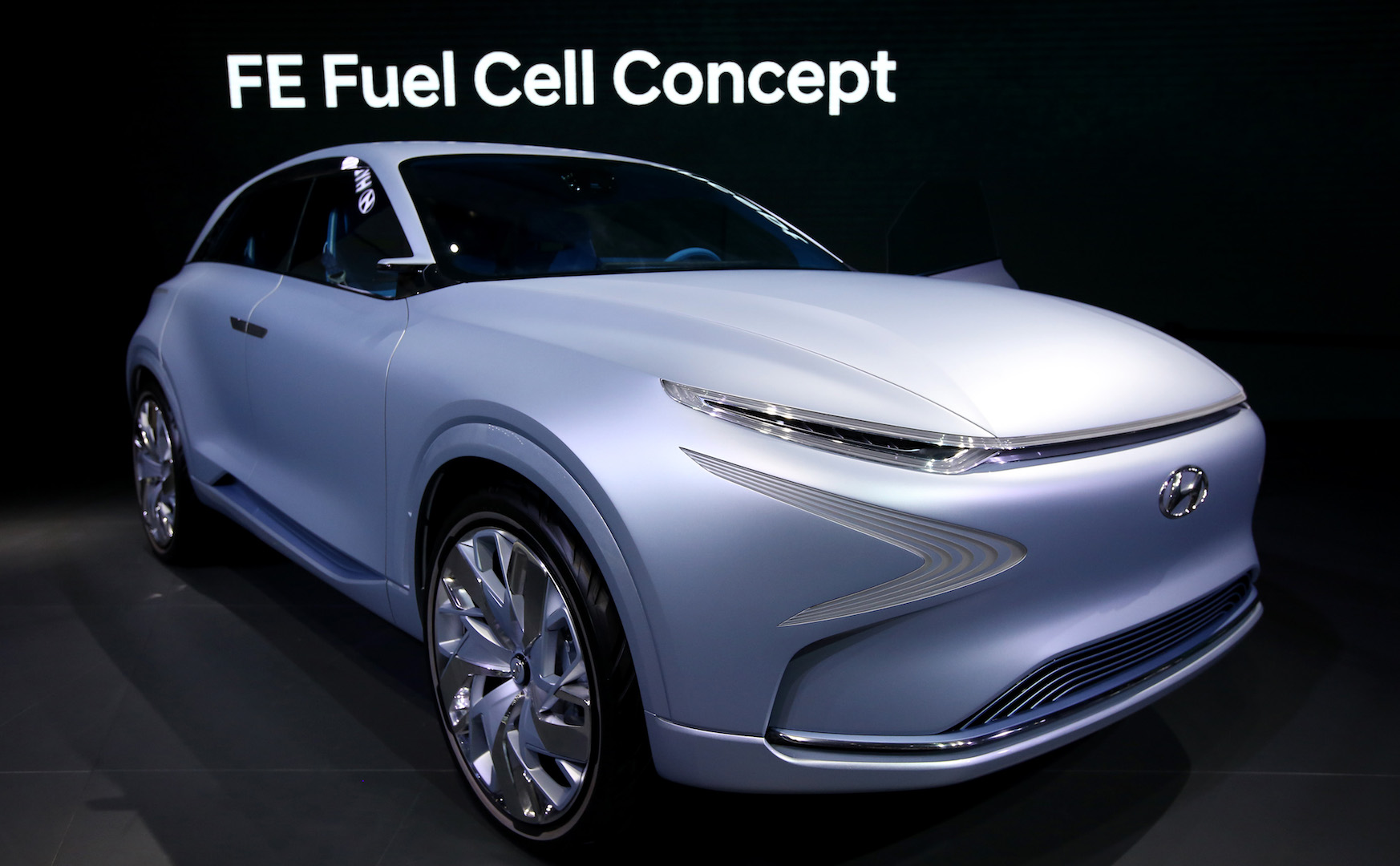

Despite being the first automaker to mass-produce fuel cell vehicles, Hyundai has trailed behind its Japanese rivals—Honda and Toyota—in fuel cell vehicle sales for several years. In a move to take back some market share, Hyundai has announced it will unveil a long-range fuel cell SUV sometime next year, Bloomberg reports.
Kim Sae-hoon, head of fuel cell research at both Hyundai and Kia—an affiliate of Hyundai—said that the new SUV will debut alongside a new fuel cell bus during the Winter Olympic Games in Pyeongchang next year. This week, though, Hyundai will have a long-range fuel cell SUV on display at the Seoul Motor Show. This SUV will feature a range of roughly 500 miles, according to the report.
One of the reasons why Hyundai has trailed in the wake of Toyota with respect to fuel cell vehicles sales is due to an undeveloped fuel cell infrastructure in South Korea and the high cost of its fuel cell cars overseas, Bloomberg reports. Speaking at Hyundai’s fuel cell research and development center in Mabuk, Kim said, “We want to lead the changes in terms of technology. When there is industrial restructuring and emergence of new technologies, it gives a new opportunity to us.”
Compared to Toyota, which sold 2,050 Mirais—the brand’s fuel cell vehicle—Hyundai only sold 242 of its ix35 fuel cell vehicles. And at least in South Korea, the infrastructure just isn’t quite there yet to support the proliferation of fuel cell-powered cars, compared to Japan. For comparison, South Korea may have 10 hydrogen charging stations, but they’re all for research and not for commercial use. Japan, on the other hand, already has 79 charging stations with 12 more in the works.
Despite being behind its Japanese rivals for fuel cell adoption, South Korea is setting itself up for change. In August, the country created a government-industry group to set up 100 charging stations in the country, get 10,000 fuel cell vehicles on the road, and export 14,000 fuel cell vehicles abroad by 2020. Another committee has also been set up to aid in the widespread adoption of fuel cell vehicles across the country.